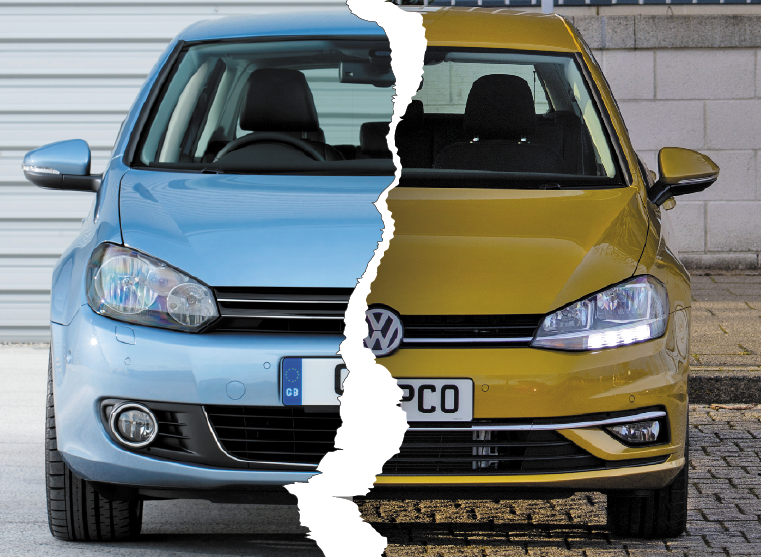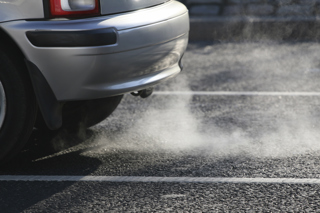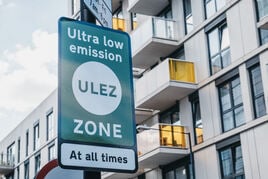Every summer for the past three years, Vauxhall has run a scrappage scheme offering customers up to £2,000 off a new car. It usually has the scrappage market to itself, but this year it has been joined by no fewer than 22 car manufacturers.
Many of these schemes have started since the beginning of September and it has not taken industry commentators long to question the motives of manufacturers amid faltering UK car sales.
James Dower, senior editor of Cap HPI’s Black Book, said the manufacturer incentive schemes were succeeding in taking older, more polluting vehicles off the roads, but described the scrappage schemes as “a marketing plan which is striking a chord”.
ASE chairman Mike Jones said registrations in the first third of September were down 14% year-on-year, but added that scrappage was driving showroom traffic.
Dower said: “When you look at changes to new car market share so far this year, the scrappage schemes are a much-needed fillip to boost the fortunes of manufacturers and retailers’ numbers in Q3. It really does feel like the last push, a last hurrah to try and salvage something from the year.”
Dower said the real hope was that the growth the schemes provide in private, retail sales would lessen the burden on retailers to pre-register cars during what may be a tough end to 2017.
Jayson Whittington, chief car editor at Glass’s, said: “What we are seeing is just a different way of promoting and selling cars instead of manufacturers putting cash in front of an attractive PCP deal.
“It’s a very positive spin on presenting offers that were probably available in other months, but in a different form.”
The deals
| Manufacturer | Fuel | EU1-EU4 | Owned for | Allowance | All models? | True scrappage | Vans | Valid with other offers |
|---|---|---|---|---|---|---|---|---|
| BMW/Mini | Diesel | Y | >12 mths | £2,000 | <130g/km | case-by-case | N/A | Yes |
| Fiat/Alfa/Abarth | All | Y | >180 days | Variable | Selected | Yes | Yes | No |
| Ford | All | Y | >3 mths | Variable | Selected | Yes | Yes | No |
| Hyundai | All | Y | >3 mths | Variable | Yes | Yes | N/A | No |
| Kia | All | Y | No Limit | £2,000 | Selected | Yes | N/A | No |
| Mazda | All | Y | >60 days | Variable | Selected | Yes | N/A | No |
| Mercedes-Benz | Diesel | Y | >6 mths | £2,000 | Selected | No | No | Yes |
| MG | All | No Limit | No limit | £1,500 | MG3 only | Yes | N/A | Yes |
| Nissan | All | >EU5 | No Limit | Variable | Selected | No | No | Yes |
| Peugeot/Citroën | All | Y | >90 days | Variable | Selected | Yes | Yes | No |
| Renault | All | Y | >3 mths | Variable | Selected | Yes | Yes | Yes |
| Suzuki | All | Y | >90 days | Variable | <130g/km | Yes | N/A | Yes |
| Toyota | All | Y | >6 mths | Variable | Selected | Yes | Yes | No |
| Vauxhall | All | No Limit | >3 mths | £2,000 | Selected | value >£2,000 | No | Yes |
| VW/Audi/Seat/Škoda | Diesel | Y | >6 mths | Variable | Selected | Yes | Yes | No |
Regardless of whether the prevalent car scrappage schemes are driven by a desire to reduce NOx emissions and meet the EU-imposed targets already missed by the UK Government, they will not be the same wholesale success of the nationwide initiative of 2009, which cost the government £300 million as it supported the replacement of 300,000 cars.
The government’s draft Air Quality Plan for Nitrogen Dioxide, published in May, did contain muted details of a national scrappage scheme that would have converted 15,000 UK motorists into EV drivers, but the plans were ultimately deemed to be an “inefficient” use of public funds.
This year’s manufacturer-backed incentives generally demand the trade-in of a Euro 4-compliant (or earlier) vehicle registered before December 31, 2009, which has been registered to the owner for about three months and offer between £1,350 and £7,000 to ‘scrappage’ customers.
BMW’s scheme, like those of NIssan and Mercedes-Benz, is not strictly ‘scrappage’ as the franchises will not actually be scrapping the pre-2010 vehicles taken in exchange for £2,000 discounts (on vehicles emitting less than 130g/km of CO2).
PSA Group and Ford offer their largest incentives on their vans, with Peugeot and Citroën following Ford’s earlier offer of a £7,000 incentive to Transit customers.
Vauxhall claims to have the most successful scrappage scheme by virtue of the fact that it has run such a promotion every May for the past three years. It has extended 2017’s scheme to the end of September.
It claims to have taken more than 20,000 high-emitting older vehicles off the roads.
In London, mobility provider Uber is taking advantage of the scrappage trend in an attempt to lure 1,000 of London’s motorists away from cars altogether, posing a potential threat to retailers inside the M25.
Introduced as part of a £150m clean air fund, Uber’s scrappage scheme offers £1,500 credit in return for proof of scrappage of a pre-Euro 4 diesel.
The offer comes as part of Uber’s offers to its drivers of up to £5,000 to upgrade their vehicles. It plans to make its London fleet of 40,000 operators 100% hybrid or EV by the end of 2019 – a policy it will introduce UK-wide by 2022.
The impact
Dower said Cap HPI’s feedback from retailers had indicated that scrappage schemes were having a positive impact on sales, but it may be difficult to extract their effects on the normal uplift experience in a plate-change month.
Jones echoed Dower’s comment that the main benefit of such schemes would be to reduce motor retailers’ need to pre-register to meet manufacturer targets for the plate-change month.
Jones said: “Be in no doubt, the volume always ends up being exactly where the manufacturers want it.”
Whittington believes the effects of the scrappage schemes may not be felt in time to arrest the sales decline.
 He said: “As it stands, many of the offers have been introduced a little late in the day to have any great effect on the September registrations.
He said: “As it stands, many of the offers have been introduced a little late in the day to have any great effect on the September registrations.
“Most people scrapping cars and ordering a new one as part of the schemes might not actually get their new car before the end of the month.”
Data released by Carwow suggested that some brands had seen a spike in interest of as much as 75% since their schemes were announced. The week of August 28 to September 3 was the online listings website’s busiest ever.
During the five days following a scrappage announcement, configurations for leading brands increased by an overall average of 28%, with the largest jump in searches experienced by Volkswagen (up 75%), followed by Ford (70%), Škoda (44%), Toyota (39%), Hyundai (33%), Seat (31%) and Audi (26%).
Alex Rose, head of trading at Carwow, said volume manufacturers whose incentives contributed a larger portion of a vehicle’s purchase price enjoyed the biggest rises: “It’s the volume brands which come out best: Volkswagen, Ford, Škoda, Toyota, Hyundai and Seat.”
Independent car retailer Umesh Samani, owner of Stoke-based Specialist Cars, took to Twitter to gauge the response to the manufacturer-led scrappage schemes. In an impromptu poll, he asked “have you been tempted or bought because of” a scrappage scheme.
Perhaps as a result of Samani’s independent clientele and internet followers, just 18% were “possibly thinking” of taking advantage of a scrappage scheme, while 37% said that it was “not even worth thinking” about and 45% said “no”. Nobody voted “yes”.
Alternative fuel flurry at Frankfurt
Car manufacturers made a flurry of declarations about a move away from diesel and petrol towards AFVs at the 2017 Frankfurt Motor Show.
Jaguar Land Rover announced its intention to make electric drivetrains an option on all model lines launched after 2020 at its inaugural Tech Fest, ahead of the show.
Much of the coverage echoed the confusion that followed an announcement by Volvo at the start of July, with much of the national press interpreting the moves as manufacturers abandoning the internal combustion engine.
However, A JLR spokesman confirmed to AM that: “We will deliver battery-electric vehicles, plug-in hybrid vehicles, mild hybrid electric vehicles, ultra-clean diesel and petrol – whatever our customers want”.
The spokesman said that, by 2020, 50% of the Jaguar and Land Rover model ranges will be available with a drivetrain that is electrified in some way.
At Frankfurt, the Volkswagen Group announced plans to offer its 300-model range with the option of an electric or hybrid drivetrain by 2030.
The group plans to bring more than 80 new electrified models to customers by 2025, including 50 purely battery-powered vehicles and 30 plug-in hybrids, as it doubles its investment in ZE vehicles to €20 billion (£18bn).
Mercedes-Benz chief Dieter Zetsche said Smart would be the first manufacturer to go EV-only from 2020, while Mercedes’ entire range would have electric or hybrid versions by 2022.
BMW announced intentions to build 25 models with some form of electrification by 2025.
Following the German brands’ early EV announcements, Honda announced at the show that it would feature the option of an electric drivetrain element in all of its future vehicles in Europe while Toyota unveiled an ambition to provide a choice of two hybrid powertrains in its core models, one providing efficiency, a second adding power and a more dynamic driving character.
Are UK franchised dealers’ workshops ready for a surge in electric vehicles? Read the results of AM’s survey.


















Login to comment
Comments
No comments have been made yet.